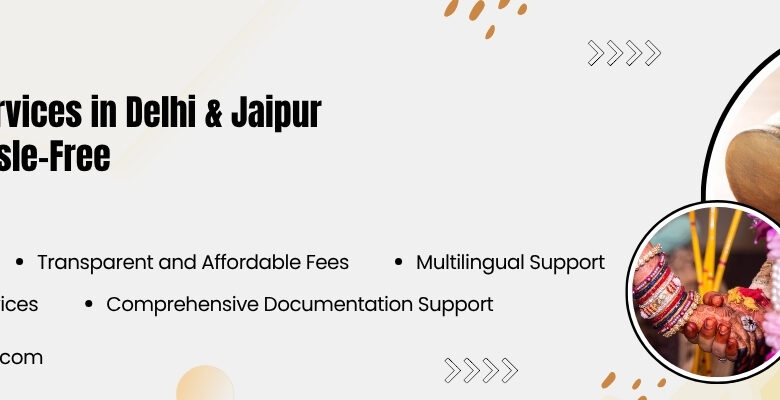Court Marriage Age – Legal Guide by Advocate Kaushal

Understanding the Court Marriage Age is crucial for any couple planning to legally tie the knot in India. Whether it is an inter-caste or inter-religion marriage, compliance with the legal age requirements ensures a smooth and valid marriage process. At Court Marriage Advocate Kaushal, we aim to simplify the court marriage procedure and make it accessible and hassle-free.
In this blog post, we’ll discuss everything you need to know about the legal court marriage age in India, important documents, and the step-by-step procedure.
What is the Legal Court Marriage Age in India?
The legal age for court marriage in India is clearly defined under The Special Marriage Act, 1954. As per the law:
- Male: Minimum age should be 21 years
- Female: Minimum age should be 18 years
These age limits are strictly enforced, and any marriage conducted below the specified ages is considered void under Indian law. It is important to note that both parties must also be of sound mind and provide free consent to the marriage.
Why Court Marriage Age Matters
The Marriage Age is not just a number; it plays a significant role in ensuring the legality and validity of the marriage. Marrying before reaching the legal age may lead to:
- Legal complications
- Rejection of marriage registration
- Criminal charges for the parties involved
- Social and financial consequences
Therefore, understanding and meeting the required court marriage age is the first step toward a lawful union.
Documents Required to Prove Court Marriage Age
To verify age and identity, couples must submit the following documents during the court marriage registration process:
- Passport-size photographs (of both parties)
- Proof of residence
- Declaration of free consent and mental soundness
These documents are mandatory, and any mismatch or incorrect details can delay or cancel your court marriage procedure.
Step-by-Step Court Marriage Procedure
Here is a simplified version of the court marriage process with a focus on verifying Court Marriage :
1. Consultation and Document Preparation
Meet with Court Marriage Advocate Kaushal to review eligibility, particularly the age criteria.
2. Notice of Intended Marriage
File the ‘Notice of Intended Marriage’ at the Marriage Registrar’s office. The notice includes age details and is displayed publicly for 30 days.
3. Verification and Objection Period
During the 30-day notice period, anyone can raise objections. If no valid objection arises, the registrar schedules the marriage.
4. Marriage Registration and Solemnization
After verifying age and identity, the registrar solemnizes the marriage.
5. Marriage Certificate Issuance
Once the procedure is complete, the registrar issues a Court Marriage Certificate, making the marriage legally valid.
Common Questions About Court Marriage Age
Can a girl marry before 18 in court?
No, the minimum legal age for females is 18.
What if one partner is underage?
The marriage will not be registered. It may also attract legal penalties, and the parties may be summoned for further investigation.
Is parental consent needed if the couple is of legal age?
No. If both parties meet the legal marriage age and consent freely, parental approval is not mandatory.
How Court Marriage Advocate Kaushal Helps
Navigating legal requirements like Court Marriage can be overwhelming. With years of experience in legal marriage services, our team ensures:
- Thorough document verification
- Legal advice on age eligibility
- Hassle-free registration process
- Accurate and timely filing of paperwork
Our mission is to help couples complete their court marriage with full legal backing and peace of mind.
Conclusion
To summarize, understanding the Court Marriage Age is essential for any couple planning a civil marriage in India. Providing authentic age proof and fulfilling all legal requirements ensures a smooth registration process.
At Court Marriage Advocate Kaushal, we guide couples through every legal formality, making sure the process is clear, transparent, and compliant with the law.
Make your big step legally strong—know your rights, meet the age requirements, and register your love with confidence.




